Measure these items to the nearest 1/2 an inch.
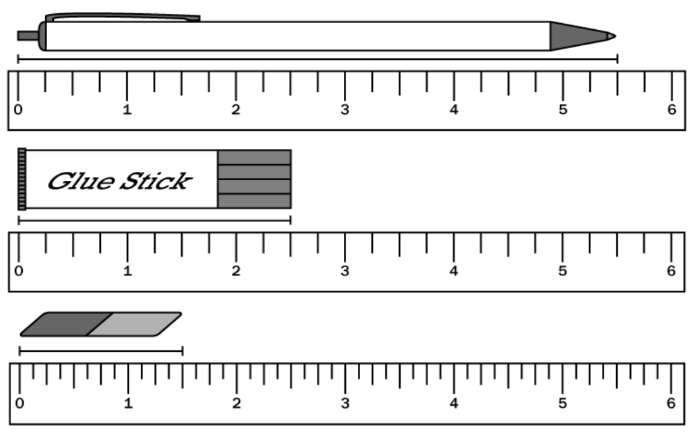
Pen: 5 1/2 inches
Glue: 2 1/2 inches
Eraser: 1 1/2 inches
The line plot shows the length of bugs found at recess (in inches).
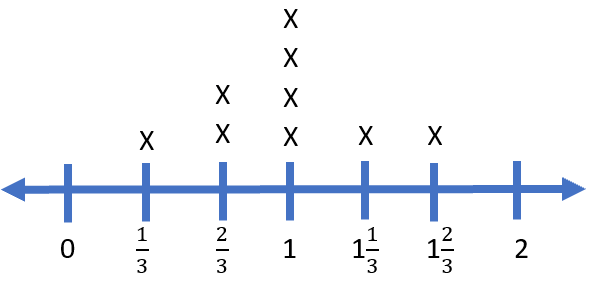
What is the difference between the longest and shortest bug?
Longest bug = 1 2/3 inches
Shortest bug = 1/3 inch
The difference is, 1 2/3 - 1/3 = 1 1/3 inches
What two statements can be made about the data?
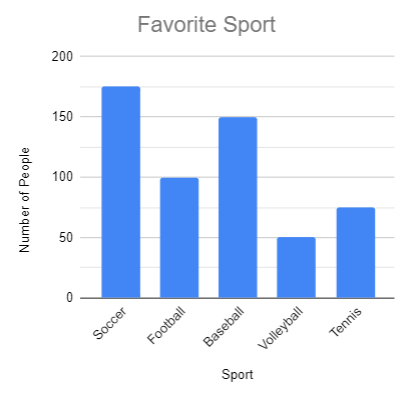
Answers will vary.
Example statements:
1. Most people voted soccer as their favorite sport.
2. The fewest number of people chose volleyball as their favorite sport.
3. The second most popular sport is baseball.
Part A: If Chelsea swam 6,000 meters, how many kilometers did she swim? (1 km = 1,000 m)
Part B: Joleen swam 3 1/2 kilometers. How many more kilometers did Chelsea swim than Joleen?
Part A: Chelsea swam 6 km
Part B: 6 - 3 1/2 = 2 1/2 km
Chelsea swam 2 1/2 km more than Joleen
Measure the length of the pencil to the nearest 1/2, 1/4, AND 1/8 of an inch.

The pencil measures 4 1/2 inches, 4 2/4 inches, and 4 4/8 inches.
Measure these objects to the nearest 1/8 of an inch.
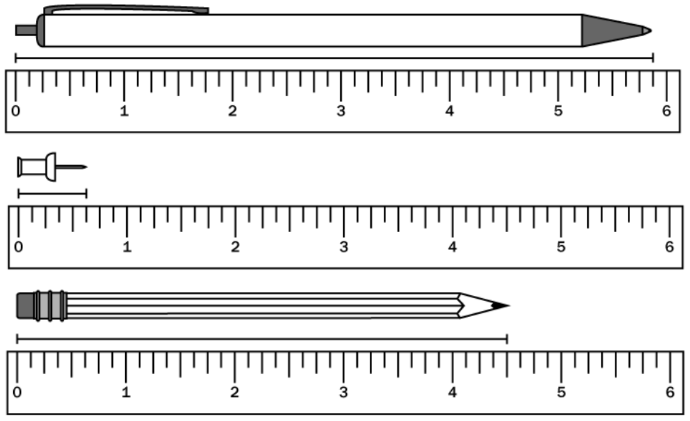
Pen: 5 7/8 inches
Tack: 5/8 inch
Pencil: 4 4/8 inches
If the teacher wanted to celebrate the students who read more than 2 hours, how many students would be celebrated?
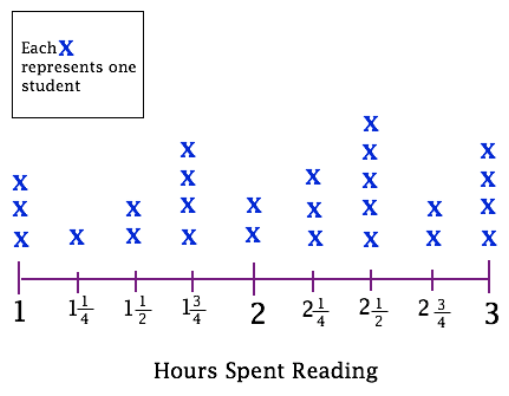
14 students would be celebrated
Using the bar graph, determine how many more people like soccer than volleyball AND tennis combined?
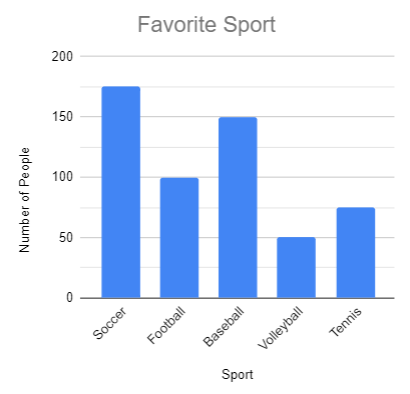
Soccer: 175
Volleyball: 50
Tennis: 75
175 - 125 = 50
50 more people liked soccer than volleyball AND tennis combined.
Part A: A crate can hold 4 kilograms. How many grams can it hold? (1kg = 1,000 g)
Part B: Michelle has 9 bags of candy. Each bag weighs 545 grams. What is the total weight of the candy?
Part C: Will the crate (from part a) be able to hold all the candy (from part b)?
Part A: A crate can hold 4,000 grams
Part B: 9 x 545g = 4,905 grams
Part C: No
Christa woke up at 5:30am. She worked out for 1/2 hour, took a shower for 23 minutes, and then drove to work. If it took her 56 minutes to drive to work, what time would she arrive? (1 hour = 60 minutes)
She would arrive at work at 7:19am.
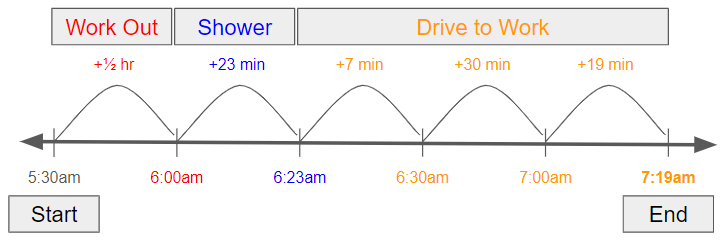
Measure these items to the nearest 1/4 of an inch.
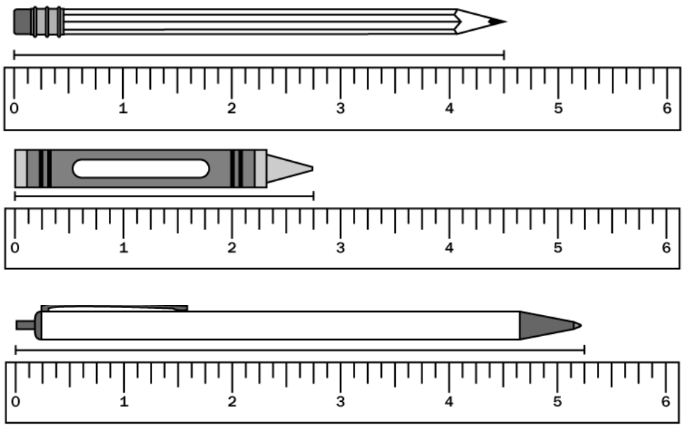
Pencil: 4 2/4 inches
Crayon: 2 3/4 inches
Pen: 5 1/4 inches
Using the data, create a line plot.
5/8, 1 1/2, 2 2/4, 2 1/2, 1/4, 1 7/8, 1 2/8, 2 4/8, 1/4, 1 5/8
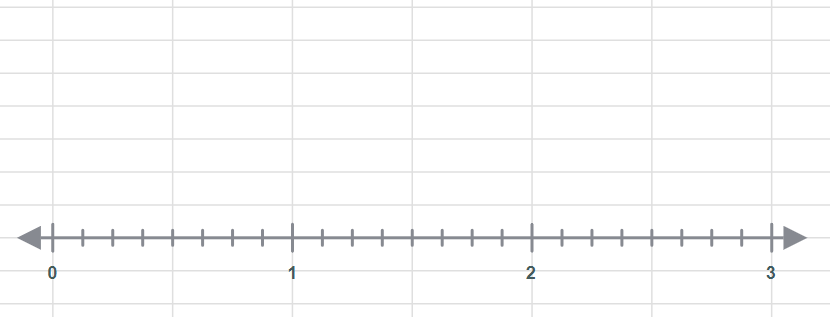

Which line plot shows the lengths of animal footprints plotted correctly?
1/4, 3/4, 3/4, 1, 1 1/4, 1 1/2, 1 1/2, 1 2/4, 2, 2
A. 
B. 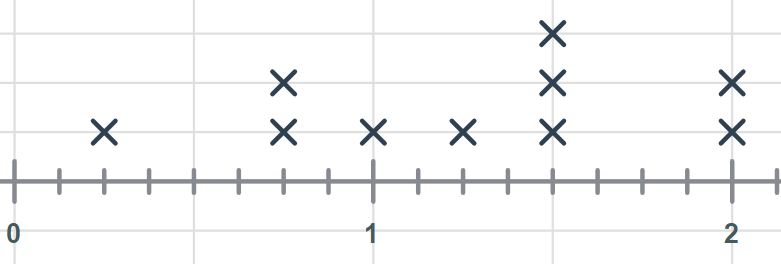
C. 
1/4, 3/4, 3/4, 1, 1 1/4, 1 1/2, 1 1/2, 1 2/4, 2, 2
B. 
Part A: Donna is running in a race. So far she has run 3 km and 742 m. How many meters has she run? (1 km = 1,000 m)
Part B: If the race is 5 km long, how much further does Donna still need to run? (1 km = 1,000 m)
Part A: 3km = 3,000 m
3,000 m + 742 m = 3,742 meters
Part B: 5 km = 5,000 m
5,000 m - 3,742 m = 1,258 more meters
She needs to wake up at 6:17am.
